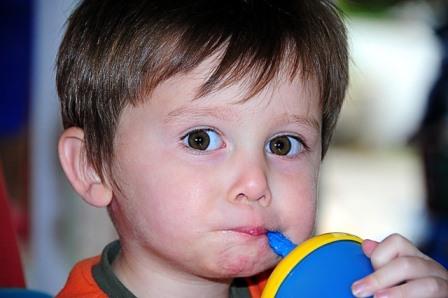- Calls to this hotline are currently being directed to Within Health, Fay or Eating Disorder Solutions
- Representatives are standing by 24/7 to help answer your questions
- All calls are confidential and HIPAA compliant
- There is no obligation or cost to call
- Eating Disorder Hope does not receive any commissions or fees dependent upon which provider you select
- Additional treatment providers are located on our directory or samhsa.gov
Is Picky Eating Classified as a Feeding Disorder in Children?

Contributor: Crystal Karges, MS, RDN, IBCLC, Special Projects Coordinator at Eating Disorder Hope/Addiction Hope
Picky eating is a common tendency among children and a concerning behavior to observe among adults and caregivers. Seeing a child eat very little, be selective with foods, or only eat certain foods repetitiously can be worrisome, to say the least. A parent or caregiver may be concerned that picky eating behaviors may contribute to a more problematic matter, such as delayed growth or malnutrition.
Understanding Feeding Disorders in Children
Feeding disorders are defined by specific criteria and include multiple subtypes, such as sensory food aversion and post-traumatic feeding disorder. Children suffering with a feeding disorder will often refuse to eat certain types of solids or liquids for duration of at least one month, which often results in delayed growth and developmental delays [1].
In addition, children with feeding disorders often suffer with difficulties while eating, such as choking, vomiting, or gagging on food, increased anxiety about eating and more.
Many feeding disorders in children are often associated with psychological and medical conditions, such as sensory problems, oral-motor dysfunction, and more. As a result of a more complex condition, a child may experience increased difficulties with basic feeding skills, which can lead to a myriad of medical complications. Picky eating can be a symptom or associated problem with a feeding disorder but in and of itself is not considered to be a feeding disorder.
Knowing When to Seek Out Professional Help and Care
 If you are concerned about potential abnormal feeding habits in your child, be sure to seek out professional help and care to appropriately address your concerns. If your child is distressed during meal times, crying when eating, frequently chewing and spitting out food, and/or vomiting/gagging/or choking when eating, be sure to discuss these concerning behaviors with your pediatrician as soon as possible.
If you are concerned about potential abnormal feeding habits in your child, be sure to seek out professional help and care to appropriately address your concerns. If your child is distressed during meal times, crying when eating, frequently chewing and spitting out food, and/or vomiting/gagging/or choking when eating, be sure to discuss these concerning behaviors with your pediatrician as soon as possible.
Feeding disorder specialists can help identify, assess and diagnose an existing feeding disorder if present in your child. Health professionals, such as Pediatricians and Registered Dietitians can also be helpful in appropriately addressing picky eating in your child and effectively guiding you with suggestions that may make meal time easier.
Community Discussion – Share your thoughts here!
What do you think are some of the concerns parents and caregivers face when it comes to picky eating in children?
 About the Author: Crystal is a Masters-level Registered Dietitian Nutritionist (RDN) with a specialty focus in eating disorders, maternal/child health and wellness, and intuitive eating. Combining clinical experience with a love of social media and writing, Crystal serves as the Special Projects Coordinator for Eating Disorder Hope/Addiction Hope, where her passion to help others find recovery and healing is integrated into each part of her work.
About the Author: Crystal is a Masters-level Registered Dietitian Nutritionist (RDN) with a specialty focus in eating disorders, maternal/child health and wellness, and intuitive eating. Combining clinical experience with a love of social media and writing, Crystal serves as the Special Projects Coordinator for Eating Disorder Hope/Addiction Hope, where her passion to help others find recovery and healing is integrated into each part of her work.
As a Certified Intuitive Eating Counselor, Crystal has dedicated her career to helping others establish a healthy relationship with food and body through her work with EDH/AH and nutrition private practice.
References:
[1]: “Feeding disorder of infancy or early childhood”. Encyclopedia of Mental Disorders. Advameg, Inc. Retrieved 26 February 2011.The opinions and views of our guest contributors are shared to provide a broad perspective of eating disorders. These are not necessarily the views of Eating Disorder Hope, but an effort to offer discussion of various issues by different concerned individuals.
We at Eating Disorder Hope understand that eating disorders result from a combination of environmental and genetic factors. If you or a loved one are suffering from an eating disorder, please know that there is hope for you, and seek immediate professional help.
Last Updated & Reviewed By: Jacquelyn Ekern, MS, LPC on March 17, 2016
Published on EatingDisorderHope.com

The EatingDisorderHope.com editorial team comprises experienced writers, editors, and medical reviewers specializing in eating disorders, treatment, and mental and behavioral health.

